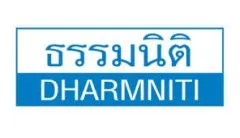If the articles of association (i.e. constitution) of a company limited contain no provision providing that at any shareholder meeting, a proposed resolution which is submitted to the shareholders for approval, shall be decided on a 'poll', which means that the votes shall be counted according to the number of the shares held by each respective shareholder (i.e. one share equals one vote) then each proposed resolution shall be decided in accordance with Section 1190 of the Civil and Commercial Code (CCC), which prescribes that:
"At any general meeting, a resolution put to the vote shall be decided on a show of hands, unless a poll is, before or on the declaration of the result of the show of hands, demanded by at least two shareholders."
This basically means that unless at least two shareholders demand a 'poll' before or upon the declaration of the result of the vote by the shareholders, then such vote shall be decided by a show of hands which essentially means that each shareholder or proxy in attendance is entitled to one vote regardless of the number of shares they hold in the company.
Example: Company Z has 4 shareholders (Mr. A, Mr. B, Mr. C and Mr. D) and the company calls a shareholder meeting to pass a resolution and only Mr. A and Mr. B attend the shareholder meeting but Mr. C and Mr. D each give a valid proxy to Mr. B to vote on their behalf. At the shareholder meeting none of the shareholders requests a poll and the Company's articles of association do not require a poll for voting. Hence, in relation to voting on the resolution which shall be done by a show of hands, Mr. A shall have 1 vote and Mr. B shall have 3 votes (1 for himself and 1 each for each proxy he represents).
Voting Using a Poll
If a poll is demanded by at least two shareholders before or upon the declaration of the result of the vote by the shareholders then in accordance with section 1192 of the CCC it shall be carried out in a manner as directed by the Chairman of the shareholder meeting.
Equality of Votes
In the case of a tie in a vote on a shareholder resolution, regardless of whether the voting is done by hand or by poll, section 1193 of the CCC provides that the Chairman of the shareholder meeting is entitled to cast a second or deciding vote to break the tie.
Problems with Voting on a Show of Hands
In some private companies, there may be several shareholders but one may own the overwhelming majority of the shares. However, unless shareholder voting is done according to a 'poll' then the majority shareholder's strong voting position given their large number of shares in the company will count for little as voting on a show of hands will only give them one vote which may not be enough to ensure a victory in a vote. This situation is arguably unfair because such vote does not let them take advantage of the majority shareholder position they have when compared to other shareholders.
Another key problem is that a single majority shareholder in a company may not be able to convince any other shareholder to join them in supporting a demand for a poll vote. If this happens, then they must accept a vote on hands and in such case their majority shareholding position will not help them to pass the resolution.
Recommendation for Majority Shareholders re Shareholder Voting
In relation to majority shareholders of a company limited, voting on a show of hands would likely be disadvantageous to their interests given that such method would not reflect their true majority shareholding position in the company. Thus, the writer recommends that to avoid this inequality, the articles of association of the company be amended to provide that all shareholder resolutions or other matters voted on at a shareholder meeting must be decided by a poll rather than by a show of hands as this will ensure that each share will count when the votes are tallied in a vote on a shareholder resolution.
Originally published 7 Sep 2023
The content of this article is intended to provide a general guide to the subject matter. Specialist advice should be sought about your specific circumstances.

